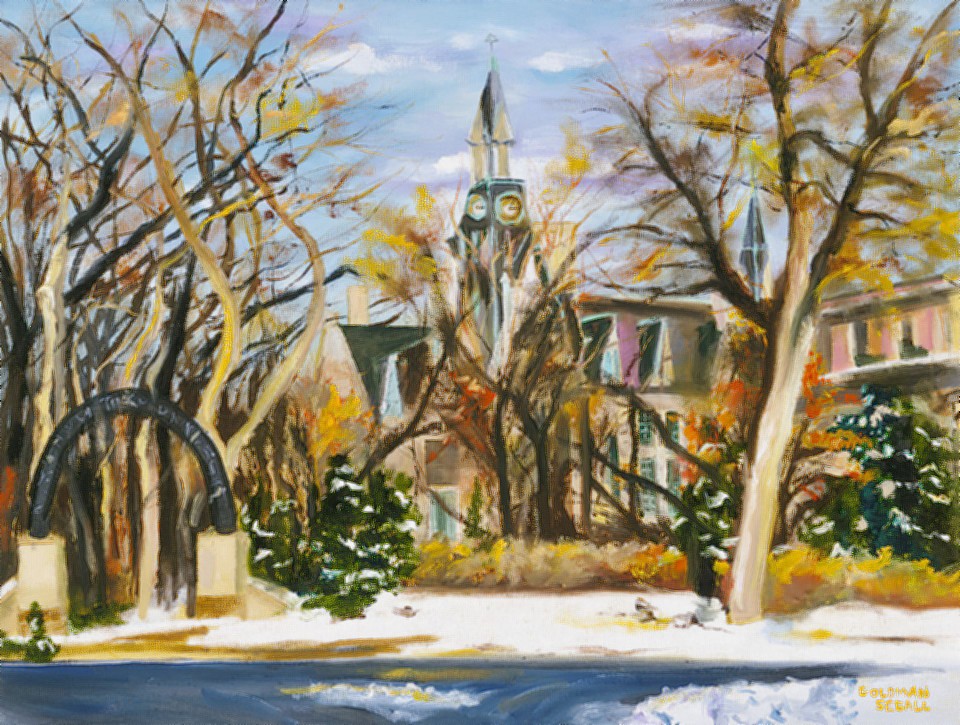What Do We Do About It?
 With the resurfacing of mental health discourse on campus at Northwestern, it’s about time we have a serious discussion about priorities. With the shocking death of a third student this year, people are understandably angry and confused. We once again mobilize over the buzzword “mental health,” eager to take action to prevent further tragedies. We point fingers at the lackluster counseling services on campus and cry out for more awareness of mental health issues through implementing a new ENU. But we fail to acknowledge our own complicity as a community.
With the resurfacing of mental health discourse on campus at Northwestern, it’s about time we have a serious discussion about priorities. With the shocking death of a third student this year, people are understandably angry and confused. We once again mobilize over the buzzword “mental health,” eager to take action to prevent further tragedies. We point fingers at the lackluster counseling services on campus and cry out for more awareness of mental health issues through implementing a new ENU. But we fail to acknowledge our own complicity as a community.
After each suicide this year, I’ve been struck by community's shock that anything was wrong in the first place. Now, all Northwestern students sacrifice their health and happiness from time to time to beat the curve, and many suffer in silence. But there are those among us who do not choose our unhappiness for later rewards. We suffer so deeply that the joys of our lives remain out of reach. Yet we too stay silent and go through the motions, even if we have been left void of all feeling, even if it absolutely destroys us inside. I do not wish to put words into others' mouths, but I can at the very least say that I understand what this is like. Many of you know me as a good friend of the Ave and a leader of many campus organizations, but I am also a rape survivor.
I do not have the luxury of repressing my mental health issues because they have become such a part of who I am. A new force that is stronger than my old identity is taking the reigns and I feel that the old me is slipping away. I do not remember what made her happy or how she interacted with others, and for a long while the only emotions I felt were anger and apathy. Not a day goes by that I do not think of that night. What matters is not my identity, but that I could be any one of you.
At Northwestern, as with many major universities, we are conditioned to always keep moving, to fill our schedules and resumes believing this is the only way to get ahead in life. When others fall behind we believe it’s not our problem and focus only on things that affect us directly. When I disappeared from the NU social scene, dropped out of my sorority, and stopped attending classes, the people closest to me ignored my obvious emotional deterioration as evidence of an extremely busy schedule. My friends couldn’t have guessed that when I didn’t show up to a pregame I was wrapped up in a ball sobbing on my kitchen floor—but they should have known I wasn’t alright. They should have known to ask the question.
I don’t know why we as a community stay silent; we suffer in silence and watch our friends recede from Northwestern life in silence. Sometimes we take the next step and ask our friends if they are okay, but an assertion that they are “fine, really” is taken as permission to move on. Maybe it’s because we are scared. But people who have not experienced mental illnesses like depression or anxiety need to understand that throwing a million dollars at CAPS does not ensure that students like me will be motivated to step forwards and tell our truths to strangers. So what can we do?
We need to change our community priorities. Earlier this week, a friend of mine asked “if we can come together so strongly in wake of a tragedy, what’s to stop us from building this same community before tragedy strikes?” We need to make an effort to value our own mental health and that of our friends over the ephemeral awards of college life. In my experience, what we really want is support, to feel like people are there for us, even if we are not ready to fully open up to them. Ask your friends how they are really doing, and be there if you sense something is wrong. Don’t try to offer advice; just be there.
And to those who feel overwhelmed by their personal struggles and think no one can understand, know that you are not alone and do not be afraid to open up. I know it’s really, really hard to expose your vulnerabilities to other people, perhaps most of all since this requires admitting your needs to yourself. Admitting to my trauma was the hardest thing I have ever done, but it was only through honesty that I am finally beginning to move forwards, to add feeling back into my life.
So no matter what plagues you, know that your pain is real. If you choose to share, no one will view you differently, and you have nothing to be embarrassed about. As we have seen, silence is deadly.
I find it frustrating that this community, which comes together in the immediate wake of tragedy, disperses again soon after, returning to our blind individuality. We do this because it’s easy and safe. Showing more compassion and re-tuning our priorities is hard, but if we all make more of an effort to be aware and look out for each other and ourselves, this school will become a better place.
Does CAPS need a larger and more equipped staff? Definitely. But budget and policy changes aren’t enough: professional mental health services but supplement, not replace, a strong community. Despite our pretensions at invulnerable independence, no one wants to go up against the world alone.
-The Infinite Guest




